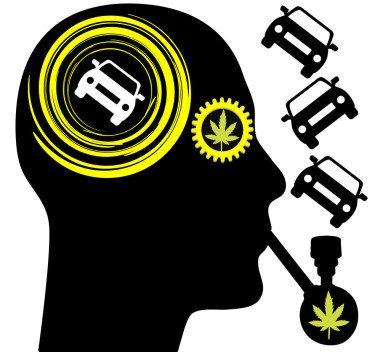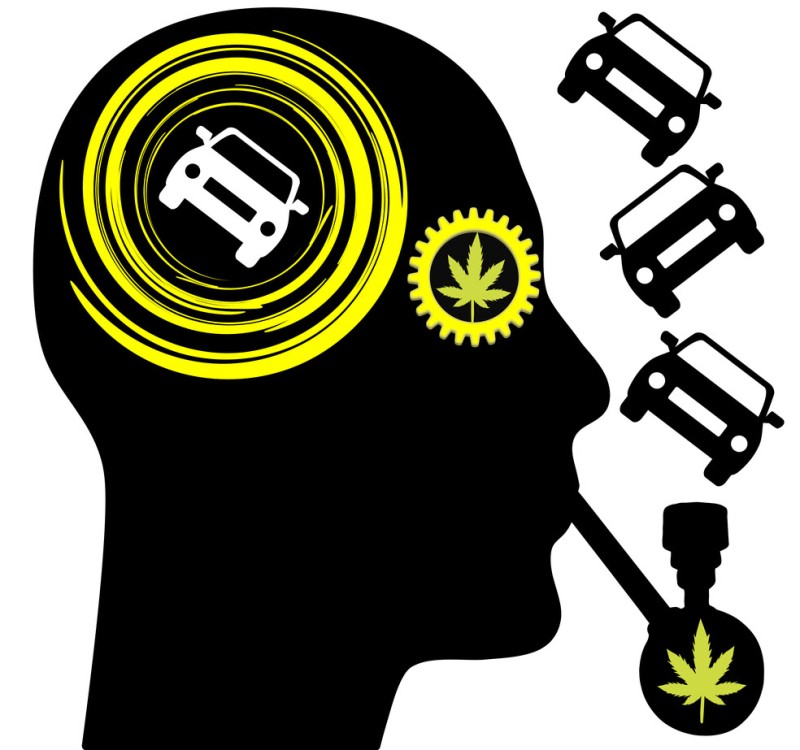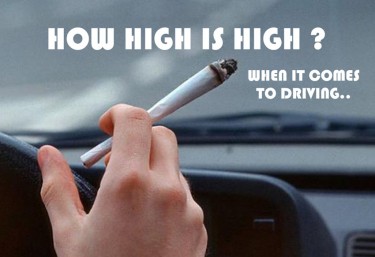
Study Shows That Cannabis Users Perform Better In Driving Tests
Some prohibitionists argue that legalizing cannabis will make society more dangerous because more people will be driving stoned.
However, drunk driving alone already kills around 32 people every single day in the United States alone, according to the National Highway Traffic Safety Administration. It is a well-known fact that driving drunk will leave you mentally unable to make smart decisions while on the road, and it’s already common sense that one should not drive while drunk, or even after a few drinks.
On the other hand, we all known countless marijuana enthusiasts who safely drive while under the influence. Given the data that we have so far, marijuana users are simply safer drivers compared to those who drink.
What The Studies Say
One of the latest studies actually even shows that regular marijuana consumers did better on distracted driving tests compared to occasional cannabis users!
Researchers from the University of Colorado, Anschutz Medical Campus together with investigators from the University of Iowa analyzed both frequent and infrequent marijuana consumers and how they performed on a simulated driving performance . The subjects could consume their own marijuana which had anywhere from 15 to 30% THC. After smoking cannabis, they were then asked to complete a series of tests that assessed how they drove while distracted. The results were published in the Traffic Injury Prevention journal.
“Those with a pattern of occasional use were significantly more likely to experience a lane departure during distraction periods after acute cannabis use relative to baseline, while those with daily use did not exhibit a similar increase,” said the researchers. “Participants with a pattern of daily use decreased their speed, which may be interpreted as a drug effect or as a compensatory strategy,” they added.
The findings from this study verified previous studies which suggested that cannabis use has been linked with partial or full tolerance when it comes to psychomotor and cognitive performance. “This may indicate that those who did use daily may perceive a potential adverse impact of acute cannabis use on driving performance and may attempt to compensate by slowing down to have more time to react to changes in the roadway,” said the researchers.
“The results provide evidence that a pattern of occasional use was associated with performing worse after acute cannabis smoking as it relates to lane departures. Those with a pattern of occasional use also behave differently with respect accelerator position, and there was a trend that those with a pattern of daily use decreased the speed,” the authors concluded.
Another study, reported by Marijuana Moment, discusses the findings of research published in Health Economics. Investigators assessed insurance data in the years 2014 through 2019 and found that vehicle insurance premiums decreased by around $22 annually on average when states enacted marijuana legalization. While the decrease in premiums may not seem much, it’s the reason behind the decline that’s important.
Based on the findings, “medical cannabis legalization has reduced auto insurance premiums by $1.15 billion in all states that have currently legalized, with the potential to reduce premiums by an additional $900 million if the remaining states were to legalize”, the authors said. It would result in a total of $2.4 billion in reduced payment for drivers all over the country if all states legalized medical marijuana. This also leads the authors to suggest there is a significant reduction in drunk driving because more people are switching over from booze to marijuana.
“Because auto insurance premiums are directly tied to property damage and health outcomes, we find evidence of a positive social impact of medical cannabis on auto safety,” said the study.
Furthermore, they analyzed zip codes which resulted in a correlation that the decrease in annual premium charges is “stronger in areas directly exposed to a dispensary, suggesting increased access to cannabis drives the results.”
The researchers also found that there was a strong link between a decrease in drunk driving rates before marijuana was legalized. “In addition, we find relatively large declines in premiums in areas with relatively high drunk driving rates prior to medical cannabis legalization,” said the study. “This latter result is consistent with substitutability across substances that is argued in the literature,” they said.
Marijuana Laws Not Linked to Increase in Car Accidents
There is also data showing that when states enact marijuana laws, the statistics on traffic fatalities do not change.
In an analysis conducted by the Florida Polytechnic University, researchers analyzed the association between statewide cannabis policies and traffic fatalities over the course of 34 years from 1985 through 2019. They saw no significant changes in deadly car accidents after recreational marijuana laws were enacted, while a decrease in fatal car accidents was found after medical cannabis laws were enacted.
“We find lower state traffic fatalities following the implementation of MMLs [medical marijuana laws], consistent with earlier work. This is true whether we employ a simple MML indicator or a continuous indicator of the permissiveness of state medical marijuana laws,” the researchers wrote. “Controlling for prior MMLs, we find no evidence of a statistically significant association between RMLs [recreational marijuana laws] and traffic fatalities. Further, we find no evidence of an association between traffic fatalities and cross-border recreational legalization,” they added.
“Liberalization of marijuana policies may eventually be shown to lead to more fatalities, at least under some sets of circumstances, as more and different states legalize recreational use and more data accrues. However, as of 2019, we find liberalization has been associated with lower traffic fatalities, not higher,” they concluded.
Conclusion
While we don’t advocate stoned driving if you are unsure of your driving skills while under the influence, many drivers have long been able to drive while stoned with no problems whatsoever. Even driving while taking CBD has shown to be safe, certainly much safer than it is driving drunk.
CANNABIS AND DRIVING, READ ON...
HOW HIGH IS TOO HIGH TO DRIVE? NEW STUDIES LOOK AT CANANBIS DUIs!







